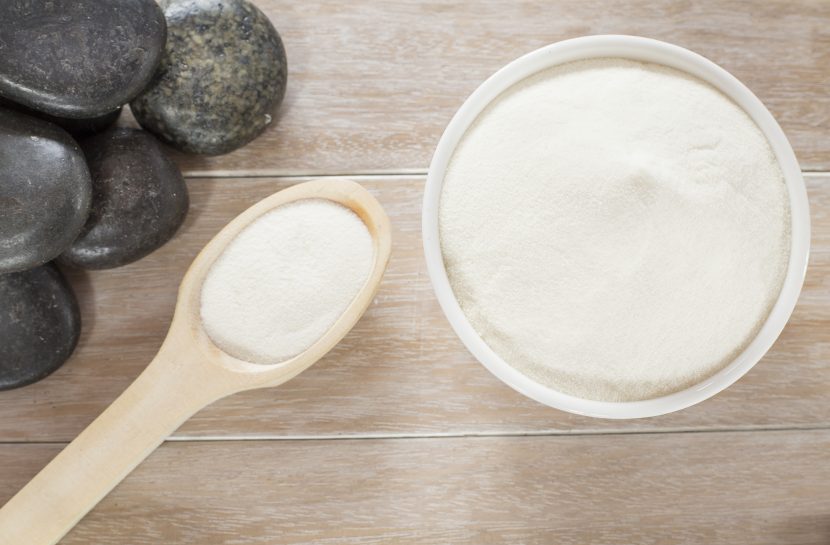There is constant news about stress these days. Sometimes, it seems that the news about stress is enough to stress someone out. But, while some stress is just a part of life (even a healthy part) and too much is detrimental, there is good news, too. The outcomes can be changed by changing a few lifestyle habits and how you respond to stress. Is stress damaging your heart?
Yes, most likely.
Can you make changes that will make a real difference? Absolutely.
Since February is Heart Month, let’s explore how stress is damaging your heart. And, more importantly, the steps you can take today to change it.
We Live Overloaded & Overreactive
When a human becomes stressed, the body sends out helpful and healthy hormones to put it on alert. The main “stress hormone” is called cortisol. It is released by the adrenal glands when the body faces stress. The natural changes in the human body as a reaction to stress are crucial if you need to run, fight, or otherwise deal with eminent danger.
Like many things in the human body, cortisol is actually here to help. But our lives are not typically in eminent danger every time we feel stressed. Our stress is mostly a “mental state,” not a physical one. It can become a constant state of being in modern life.
If stress is an occasional experience, cortisol sweeps in and saves the day. When cortisol is chronic, our bodies operate in a “depressed” state of reaction to cortisol. Instead of a “normal” small amount of cortisol doing the job of getting our heartrate up and us moving away from danger, our bodies ignore this “normal” small amount. So what happens?
We adjust. Our bodies send MORE cortisol for stress (even “slight stressors”) and also work to make us more reactive anytime cortisol starts to decline. Now we are overloaded and overreactive. We “need” more and more. Sound familiar?
The real kicker: This effect is worsened by elevated insulin levels and possibly adipose tissue. So, if you are overweight and/or have unhealthy glucose levels, this entire cycle is exaggerated (1).
Is Stress Damaging Your Heart and Health? Yes, Here’s How
We’ve known for decades that elevated chronic cortisol is associated with a decline cardiovascular health. It is directly associated with elevated blood pressure, unhealthy blood glucose, truncal obesity, unhealthy cholesterol levels, and more. It negatively affects sleep. Then, with poor sleep, daytime cortisol is increased. This again negatively affects sleep. Poor sleep is also associated with cardiovascular risk factors, furthering the damage (2).
What’s more, high levels of chronic mental stress can be devastating to your brain, your digestive tract, and your immune system. It can negatively impact your mood, energy, potentially lower brain volume, and induce memory challenges (3). Chronically elevated cortisol levels can affect all our body’s systems.
But Wait: There’s Really Good News in All of This
It may seem dire. We live in a stressful world. Many of us are chronically stressed with no idea how to actually decrease our stress levels since they are tied to activities required of us like work, driving, relationships, and more. Where’s the good news?
The good news about stress is this: It’s not actually your level of stress that matters. It’s your level of perceived stress.
Let’s say that again. Your body reacts to the stress you perceive. If you use stress-lowering habits that reduce your perceived stress, you can hijack the entire cascade of events. You can outwit your brain and tell it that the stressful event isn’t really all that stressful.
Sure, there will always be life events that are truly stress-inducing. But for most of us, the day-in day-out stress is little more than worry that we make worse. If you want to halt stress from damaging your heart and your health, it’s time to take action against high perceived stress.
Quick List: 15 Stress Hijacks – No More Heart Damage
1. Stretch In the Morning
Believe it or not, the flexibility of your spinal cord and spine are directly correlated with the flexibility of your arteries.
Flexible arteries are crucial for healthy blood pressures and overall health. As crazy as it sounds, researchers have found that poor trunk flexibility is associated with stiff arteries. This means that keeping your body flexible enough to touch your toes means better artery health and blood pressure(4). One study of a stretching program found better blood pressure results from stretching than from walking (5)!
Is stress damaging your heart? Possibly, but stretching can help you relax AND improve blood pressure!
2. Try Icing Your Nerves
Ever heard of the vagus nerve? Your vagus nerve runs from your brain down to your abdomen. It’s known as the “wandering nerve” because it wanders down your body carrying a range of signals from your brain to your organs. Importantly, it plays a key role in your parasympathetic nervous system and can hijack the “stress cascade.” When the vagus nerve is activated, it sends a signal to slow your heart rate and lower your blood pressure telling your body it’s time to relax. This can counteract your reaction, or overreaction, to a stressful situation.
To activate the vagus nerve, try icing it. How? Simply apply an ice pack to your chest, back of your neck, and/or forehead area. You can also try a fae cold-plunge using ice water in a large bowl.
This easy, free anti-stress-reaction hack takes less than 30 seconds and has been shown in studies to be effective in reducing heart rate and stress reaction (6).
3. Use Natural Elements & Ingredients to Balance Your Body
There is new wonderful supplement in the Divine Health line-up specifically designed to help you naturally reduce your stress reactions.
It’s called Divine Health Stress Less Drops.
Each drop uses your body’s natural “stress-reduction” parasympathetic system to encourage calm moods, clarity, healthy energy pathways, better sleep, and balance. In fact, it’s made of liquid ionic trace minerals in distilled water that include 85 trace minerals harvested with care from Utah’s Great Salt Lake. They also include a significant amount of magnesium. Magnesium is used by every cell and involved in over 300 daily reactions. It specifically impacts energy production, sleep, hormone balance, and more (12, 13, 14, 15).
4. Get into the Keto Zone and Achieve or Maintain a Healthy Weight
Since healthy cortisol function is inhibited by elevated glucose, insulin, and obesity, it’s vital to get control of your eating habits, reduce processed foods and refined sugars, and achieve a healthy weight. How? Get started with Keto Zone: Start with Dr. Colbert’s Keto Zone Diet Book !
Is stress damaging your heart? Possibly, but following a low-carb diet with no processed foods will help you become heart healthy and reduce the negative affects of the stress reaction!
5. Calmly Breathe In and Out
Did you know you can combat stress with your lungs? It’s true. You can calm your heart, your brain, and your body by breathing calmly. Try this:
While pressing your tongue strongly against the roof of your mouth, breathe in slowly. Then, allow your tongue to completely relax and lower, even allowing your mouth to hang open if you want, and slowly breathe out. Do this for an entire minute.
6. Exercise, Outdoors if Possible
When you exercise, you release your body’s own ability to combat stress. In fact, studies suggest that exercise can improve anxiety symptoms or stressed moods especially in those who have a history of dealing with chronic stress (15). It’s interesting. Exercise can actually increase stress hormones acutely. However, these hormones quickly decrease back to healthy levels and long-term stress outcomes improve (16).
What’s more, moods improve when you get outside. If you don’t know where to start, start walking. Here are 10 Amazing Benefits of Walking.
7. Laugh Any Chance You Get, Especially with Friends & Loved Ones
If life doesn’t seem pleasant, fun, or funny at the moment, you’ll have to go out of your way to proactively laugh. It may seem silly. But, if you prioritize laughter, you will reduce stress and your reactiveness to it. Start by reading your favorite funny author, spending time with a great friend, listening or watching a favorite comedian or show, or hanging out with children.
Amazingly, laughter is considered a scientific, effective, non-invasive therapy for improved mental health and mood. In fact, it’s been found that laughter alters dopamine and serotonin activity, and causes an increase in endorphins. These chemicals decrease discomfort, cortisol (17), and depressed moods (18).
8. Stay Hydrated with a Stress-Busting Tea
Did you know that dehydration can increase cortisol? Dehydration is linked to increased saliva and blood cortisol. Amazingly, multiple studies have found that dehydrated athletes have more circulating cortisol than hydrated ones (19).
Of course, water is a great choice for hydration. But, you can take it a step further and drink cortisol-reducing black and/or green tea. Tea is a health-promoting drink that you can use as a tool to combat stress daily. In studies, tea consumers reported a higher “sense of relaxation,” lower blood platelet activation, better heart health indicators, brain health, oral health, and a fiery metabolism (20). Take it one step further and flavor your tea with Divine Organic Health Supremefood Powders.
9. Pray with Gratitude
No matter the stress you’re facing, the practice of daily gratitude and prayer can change everything. In fact, practicing gratitude has been proven to support decreased cortisol and stress levels.
Moreover, prayer is a wonderful gift for spiritual health. Prayer is thought to increase the secretion of neurotransmitters, such as dopamine. These compounds decrease cortisol while promoting relaxation, focus, and motivation. Of course, for Believers, prayer and gratitude to God goes beyond mental health. Our spiritual health is the foundation of everything else!
Is stress damaging your heart? Maybe, but prayer and gratitude are powerful agents against it!
10. Daily Dose of Olive Oil
When you ingest high-polyphenol olive oil every day, you protect your heart. In fact, the nutrients in olive oil reduce inflammation and cholesterol oxidation in artery walls (21). It can can also lower blood pressure and reduce the need for hypertension medications by up to 48% (22). What’s more, studies have found that those who consume olive oil have a significantly lower risk of stroke than those who don’t (23). This is an easy step to fight the cardiovascular damage from stress.
11. Put Down the Phone and the Remote
Sure, we all need to “tune in” to know what is happening in the world. However, increasingly, we’re tuning in too much. We are now inundated with news nonstop. We see struggles from every corner of the world, sometimes truthfully and sometimes grossly exaggerated.
What’s this doing to our stress levels? Recent studies suggest more media consumption means more feelings of stress, depression, and anxiety (24). Instead of tuning into a device for countless hours, get your news in small doses from a trusted source. Then, proactively put it down and tune into your physical world and the people present in your life.
12. Prioritize Sleep
As mentioned above, high daily cortisol negatively affects sleep. Poor sleep increases daily cortisol (25). And on and on.
No matter the situation, you can combat daily stress and improve mental health by breaking the cycle with adequate sleep. In fact, adults should all aim to get 7-9 hours of good quality sleep each night. Here are 7 ways to improve yours!
Is stress damaging your heart? Not so much now! Sleep fixes many things…and this is especially true in hijacking a negative stress reaction!
13. The Right Foods & Drinks Will Help
In addition to getting in the Keto Zone, you can pick specific stress-fighting foods. For example, try fatty fish like salmon, dark chocolate (70% or higher cocoa), fruits and vegetables, these high-antioxidant foods, or Divine Health Organic Supremefood Powders.
To reduce stress today through your entire diet, first follow the Keto Zone principles, and then move to Beyond Keto. You can start with this article, check out Dr. Colbert’s Beyond Book, and follow the recommendations and recipes on this site to get going. Beyond Keto takes what you’ll learn in Keto Zone (which is designed to help you achieve a healthy weight quickly), and focuses on anti-inflammatory, healthy eating for life.
14. Add Adaptogens to your Routine
What are adaptogens?
Adaptogens are herbal compounds that were initially defined as substances that enhance the “state of non-specific resistance” in our stress responses (26). In other words, they help us adapt to stress with a healthier response that does not fatigue our adrenals or cause the cascade or overreactions that causes damage.
Specifically, they can lower our sense of stress. They can reduce our cortisol response. They can support immune system health, brain cells, energy production, sleep, and more. Common adaptogens include ashwagandha, Rhodiola Rosea Root, and GS15-4 Korean Ginseng Root. To learn more, read this article.
15. Stop Trying to Keep Up & Simply Do Less
If you’re like most people, you may bring stress upon yourself by loading up your schedule. Some things can’t be avoided, but oftentimes we overschedule ourselves without purpose.
To reduce stress, decide which activities are necessary. Then, whittle down the extras by choosing those that promote health, fun, joy, and peace within you. Those that don’t cause extra stress.
Never be afraid to say “no” to a busy schedule for the sake of your health and well-being.
Bottom Line
Stress is a part of human life. It’s not going away. But, you are in charge of your perceived stress and your reaction to it. Once you realize this, you can take necessary steps to improve. You can stop stress from damaging your heart and health by hijacking the cascade of events that causes the damage. We’ve provided 15 tools to hijack it. Which is your favorite? Do you use other stress hijack strategies? Let us know in the comments!




















